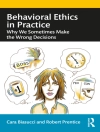Features specific, highly effective counseling interventions for school-age children that can be put to use immediately
Twenty percent of school-age children in the United States experience mental health issues each year and cognitive behavioral therapy (CBT) is one of the most effective and empirically supported interventions to address these needs. This practical, quick-reference handbook is for mental health professionals in the Kñ12 school setting who are seeking a hands-on guide for practicing CBT. Based on a wealth of research supporting the efficacy of CBT for school-age children, it features specific interventions that can be applied immediately and is tailored to the needs of busy school psychologists, counselors, and social workers. Importantly, this book describes how to use CBT within contemporary school-based service delivery frameworks such as multitiered systems of support (MTSS) and response to intervention (Rt I).
Examining the core components of CBT in the context of school-based therapy, this book offers developmentally appropriate treatment plans targeted for specific issues based on the new DSM-5 criteria, as well as tools for measuring progress and outcomes. Case conceptualization examples are provided in addition to contraindications for counseling therapy. The book also explains how to adapt treatment in light of developmental issues and cultural considerations. Case examples, sample reports, and a great variety of reproducible handouts (also available in digital download format) are provided to help school mental health professionals use CBT as part of their regular practice.
KEY FEATURES:
- Presents content that is highly practical and immediately applicable for professionals and trainees
- Designed to work within and meet the needs of the specific service delivery environment of schools, including MTSS and Rt I
- Reflects DSM-5 criteria and the Patient Protection and Affordable Care Act
- Includes case studies and hands-on session outlines, report templates, and student activities (also available in digital download format)
Table des matières
‘
Contents
Contributors
Foreword by Thomas Oakland, Ph D, ABPP, ABPN
Preface
Acknowledgments
PART I: INTRODUCTION TO COGNITIVE BEHAVIORAL THERAPY
1. Effectively Integrating CBT Counseling Into School Services
DSM-5 Child and Adolescent Diagnoses and Age of Onset
Counseling Within Multitiered Systems of Support in Schools
Progress Monitoring
CBT Efficacy in School-Based Applications
2. What Is Cognitive Behavioral Therapy?
Psychoeducation
Cognitive Restructuring
Sentence Completion and If/Then Questionnaires
Relaxation Training
Contingent Reinforcement
Incorporating Technology: Low-Intensity CBT Interventions
Case Conceptualization
Contraindications for Counseling Therapy
Getting Started
PART II: COUNSELING STRUCTURE FOR INTERNALIZERS
3. Understanding Internalizing Problems
(Olivia Soutullo and Lee Purvis, coauthors)
Anxiety and Related Disorders
Generalized Anxiety Disorder
Selective Mutism Disorder
Separation Anxiety Disorder
Specific Phobia
Social Anxiety Disorder (Social Phobia)
Somatic Symptom Disorder
Panic Disorder
Trauma and Stressor-Related Disorders
Adjustment Disorder
Posttraumatic Stress Disorder
Bipolar and Related Disorders
Bipolar I Disorder
Cyclothymic Disorder
Depressive Disorders
Major Depressive Disorder
Persistent Depressive Disorder
Disruptive Mood Dysregulation Disorder
Eating Disorders
Anorexia Nervosa
Bulimia Nervosa
Obsessive-Compulsive and Related Disorders
Obsessive-Compulsive Disorder
Excoriation (Skin-Picking) Disorder and Trichotillomania (Hairpulling Disorder)
Hoarding Disorder
Personality Disorders
Schizoid Personality Disorder and Schizotypal Personality Disorder
4. Cognitive Behavioral Therapy for Internalizing Problems
(Janise Parker, coauthor)
Exposure/Response Prevention Therapy
When to Use or Not Use Exposure/Response Prevention Therapy
Behavioral Activation
When to Use or Not Use Behavioral Activation
Cognitive Restructuring
When to Use or Not Use Cognitive Restructuring
Relaxation Training
When to Use or Not Use Relaxation Training
Social Skills Training
When to Use or Not Use Social Skills Training
PART III: COUNSELING STRUCTURE FOR EXTERNALIZERS
5. Understanding Externalizing Problems
Disruptive, Impulse-Control, and Conduct Disorders
Conduct Disorder
Intermittent Explosive Disorder
Oppositional Defiant Disorder
Neurodevelopmental Disorders
Attention Deficit Hyperactivity Disorder
Autism Spectrum Disorder
Tourette’s Disorder
Bullying in Schools
6. Cognitive Behavioral Therapy for Externalizing Problems
Identifying Physiological Precursors/Triggers
When to Use or Not Use Identification of Physiological Precursors/Triggers
Building Feeling Vocabulary
When to Use or Not Use Strategies for Building Feeling Vocabulary
Cognitive Restructuring
When to Use or Not Use Cognitive Restructuring
Parent Training
When to Use or Not Use Parent Training
PART IV: COUNSELING REPORT CASE SAMPLES FOR CHILDREN AND ADOLESCENTS
7. Elementary School Counseling Sample Reports
8. Secondary/Postsecondary Counseling Reports
Appendix
Index
‘A propos de l’auteur
Diana Joyce-Beaulieu, Ph D, NCSP, is a faculty member of the National Association of School Psychologists (NASP)-approved and American Psychological Association (APA)-accredited School Psychology Program at the University of Florida.












